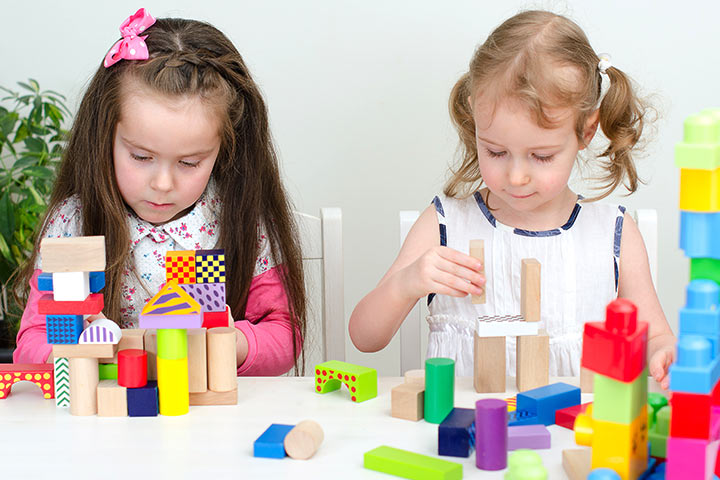 Source: bing.com
Source: bing.comAs a new parent, you may be wondering how you can help your baby develop intellectually and linguistically. The answer is simple: play! It may seem like your baby is just having fun, but play is actually an incredibly important part of your baby’s development. In this article, we’ll explore how play supports your baby’s intellectual and language development, and give you some tips on how to make the most of playtime with your little one.
Table of Contents
The Importance of Play
Play is the way babies and young children learn about the world around them. Through play, they develop their cognitive, language, social, emotional, and physical skills. Play allows babies to explore and experiment, to learn cause and effect, to problem-solve, and to develop creativity and imagination.
Furthermore, play is crucial for building strong bonds between babies and their caregivers. When you play with your baby, you’re not just providing them with learning opportunities, you’re also giving them love, attention, and security. This helps to build a strong foundation for their future development.
How Play Supports Intellectual Development
Play is essential for developing a baby’s intellectual skills, such as memory, attention, and problem-solving. When babies play, they are constantly learning and processing new information. For example, when a baby plays with a toy, they learn about the toy’s properties, such as its shape, texture, and weight. They also learn how to manipulate the toy, which helps them develop their fine motor skills.
Play also helps babies develop their cognitive skills, such as memory and attention. When babies play, they are constantly processing new information and building connections in their brains. This helps them develop their memory and attention skills, which are essential for learning and problem-solving later in life.
How Play Supports Language Development
Play is also crucial for developing a baby’s language skills. When babies play, they are exposed to new words and concepts, and they learn how to communicate with others. For example, when you play peek-a-boo with your baby, you’re teaching them about object permanence and helping them develop their language skills by using simple phrases like “peek-a-boo” and “where’s mommy?”
Play also allows babies to practice their communication skills, such as turn-taking and responding to others. When you play with your baby, you’re giving them opportunities to practice their communication skills in a safe and supportive environment.
Tips for Playing with Your Baby
Now that you know how important play is for your baby’s development, here are some tips for making the most of playtime:
- Choose age-appropriate toys and activities. Babies need toys that are safe and stimulating. Choose toys that are appropriate for your baby’s age and stage of development.
- Follow your baby’s lead. Let your baby take the lead in playtime. Observe what they’re interested in and respond accordingly.
- Make playtime interactive. Talk to your baby, sing songs, and make silly faces. This will help them develop their language skills and build a strong bond with you.
- Be present and attentive. Put away your phone and other distractions during playtime. This will help you be present and attentive to your baby’s needs and interests.
- Enjoy the moment. Playtime is a special time for you and your baby. Enjoy the moment and have fun!
Frequently Asked Questions
Q: How much playtime does my baby need?
A: Babies need plenty of playtime throughout the day. Aim for at least 30 minutes of playtime each day, but don’t worry too much about the exact amount. Follow your baby’s lead and let them play as much as they want.
Q: What if my baby doesn’t seem interested in playing?
A: It’s normal for babies to have times when they’re not interested in playing. If your baby doesn’t seem interested in playing, try changing the activity or the environment. For example, take your baby outside for a walk or try playing with a different toy.
Q: What if I don’t have a lot of toys or play equipment?
A: You don’t need a lot of fancy toys or equipment to play with your baby. Simple household items like pots and pans, cardboard boxes, and blankets can be great for imaginative play. You can also make your own toys, like a sensory bottle or a DIY baby gym.
Q: Is screen time okay for babies?
A: The American Academy of Pediatrics recommends that babies under 18 months have no screen time, and that babies 18-24 months have limited screen time (less than 1 hour per day). Screen time can interfere with a baby’s development, so it’s best to avoid it as much as possible.
Q: What if I’m not sure how to play with my baby?
A: It’s okay if you’re not sure how to play with your baby. Just follow your baby’s lead and have fun! Talk to them, make silly faces, and let them explore their environment. The most important thing is to be present and attentive.
In conclusion, play is a crucial part of your baby’s development. Through play, babies learn about the world around them, develop their cognitive and language skills, and build strong bonds with their caregivers. By following the tips in this article and enjoying playtime with your little one, you’ll be helping them grow and thrive.
